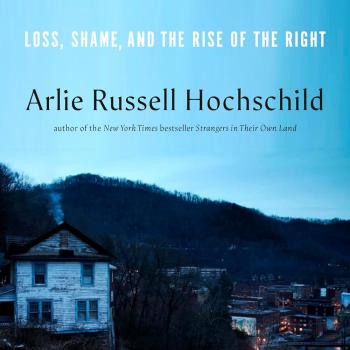Lectionary Reflections: Year A
Fifth Sunday of Easter
May 22, 2011
Psalm 31:1-5, 15-16
I must admit that it is a special pleasure and privilege to spend these weeks looking carefully at the psalms chosen for the Sundays following Easter. I was the editor for the psalms and canticles material that may be found at the back of the 1989 United Methodist Hymnal, and in preparation for that editorial work, our committee met twenty-two times in various places in the U.S. and overseas, singing and reciting the psalms to and with one another. What a grand experience that was! For those three years or so, I was steeped in the language, rhythms, and theology of the ancient Psalter, and like a cup of hot water with a fresh teabag floating in it, I felt my whole soul was colored and flavored by these ancient poems.
How sad it is that so few of these pieces of poetry permeate our church lives. Of course, in certain ecclesiastical traditions a psalm is recited or sung each Sunday, a practice dating back hundreds of years. In my own United Methodism I think it is still very rare for our congregations to share in the old hymns. I think that is a great loss to us, for in the Psalms, one can discover both the new and old things of God. We may be reminded that God has always been active in the lives of God's people, saving and challenging them from the beginning of time. And we may be promised that this same God will never leave or forsake us, despite our constant will to leave and forsake God. When I was heart-deep in the poems those twenty or so years ago, I remember that words and phrases from them would float into my consciousness, speaking to my thoughts and feelings in ways I could never predict, but in ways that I always found enlivening and surprising. I wish the same for you.
Psalm 31 has its own special pleasures. It is a very familiar sounding piece, echoing in its language more than a few other poems of the Hebrew Bible. Its opening lines have been sounded before:
In you, O YHWH, I seek refuge.
Do not let me ever be put to shame;
In your righteousness deliver me.
We can tell right away that Psalm 31 is a psalm of supplication. The psalmist is in desperate need of God's aid, and is not at all reluctant to ask from God what is needed. This first verse encompasses three distinct movements.
First, the psalmist makes it clear that YHWH alone is the ultimate source of refuge; that opening line might also be translated, "In you, O YHWH, I shelter." The psalmist wants to make it very clear at the beginning that he has no intention of seeking refuge in any other place but in the arms of YHWH. This is not a last-gasp hope that after all other possibilities of shelter have been exhausted—fame, power, success, money, family—only then will this worshipper finally turn to God. No, YHWH is the first line of defense, not the last. Of course, neither does it hurt the Psalmist's cause to announce to YHWH that YHWH is supplicated before all other possible places of help!
Second, in a shame-based culture, as ancient Israel's certainly was, beyond all other tragedies, the psalmist urges YHWH never to let him/her be put to shame, or simply "be shamed." What does this mean in reality? Reputation and the honor that flows from it form the bedrock of such a culture. Holding one's head high in society in all cases and everywhere is the goal of all of such a culture's human desires. To be discerned as not honorable, as having done something worthy of shame or embarrassment, or even having the hint of such dishonor hanging around one's life, is among the very worst things that could happen. It marked the end of societal approval, the end of being inside the culture whose approbation was essential for living. In short, one might just as well be dead, for death of societal connections was nothing less than a living death. The psalmist thus urges YHWH to be ever vigilant against any kind of shame for the poet.
Third, "in your righteousness deliver me." This can be heard in more than one way. The preposition "in" could also be read "with"; thus the psalmist asks YHWH to employ one of God's basic characteristics—God's righteousness—on his/her behalf. One helpful way to understand just what the psalmist is asking is to remember one of the Bible's great stories from Genesis 18:22-33. In that tale, YHWH has decided to destroy the terrible city of Sodom, having seen with the divine eyes just how every person in that city—men, women, and children (Gen. 19:4 makes it very clear that not only the males of the city were involved in this attempted rape)—foully treated the visiting strangers in their midst. But before YHWH carries out the sentence against the city, YHWH decides to tell Abraham, YHWH's chosen prophet, what is about to happen.
Instead of answering YHWH in an expected way, saying something like, "Okay, boss; anything you want to do," Abraham instead argues with YHWH about the divine decision. "Will you really sweep away righteous with wicked? Suppose there are fifty righteous in the city; will you then sweep away the place and not forgive it for the fifty righteous who are in it? Far be it from you to do such a thing, to slay the righteous with the wicked, so that the righteous are treated like the wicked. Far be that from you! Shall not the judge of all the earth do what is just?" (Gen. 18:23-25) YHWH, says Abraham, simply must respond to righteous human actions with even grander divine righteousness. If fifty righteous ones (why, even ten—or even one—will do see Gen. 18:32!) are found, their righteousness should be adequate to offset the vast wickedness of all the rest. If it is so with humanity, how much the more is it so with YHWH!





